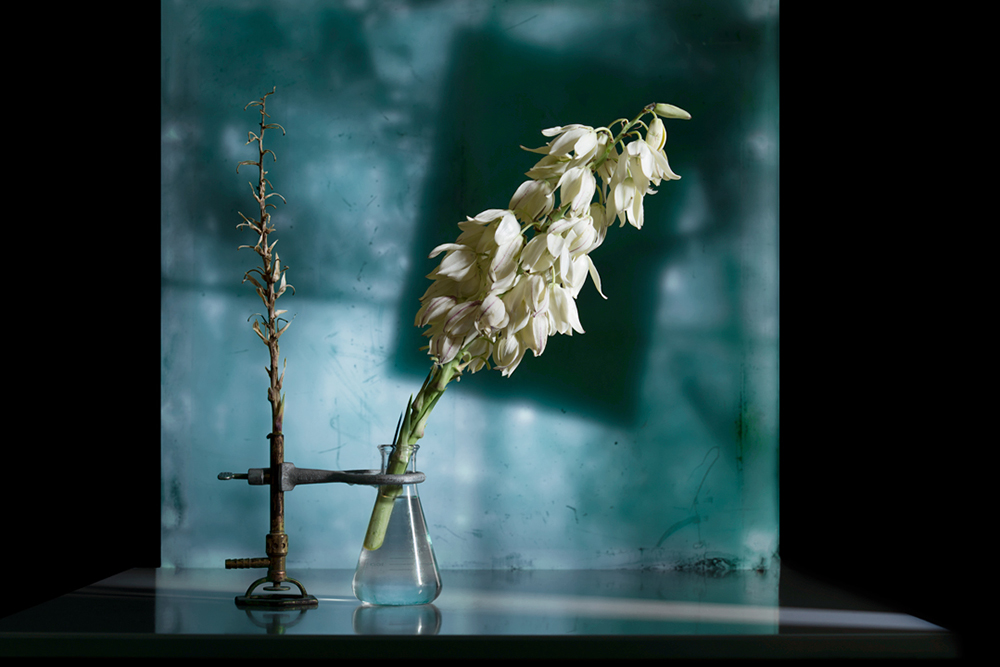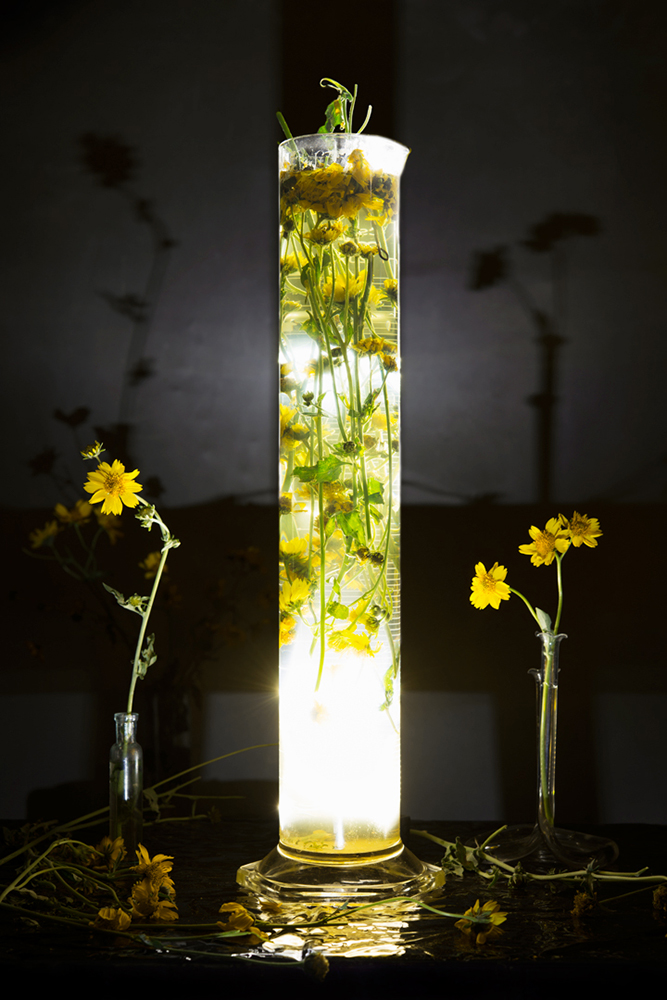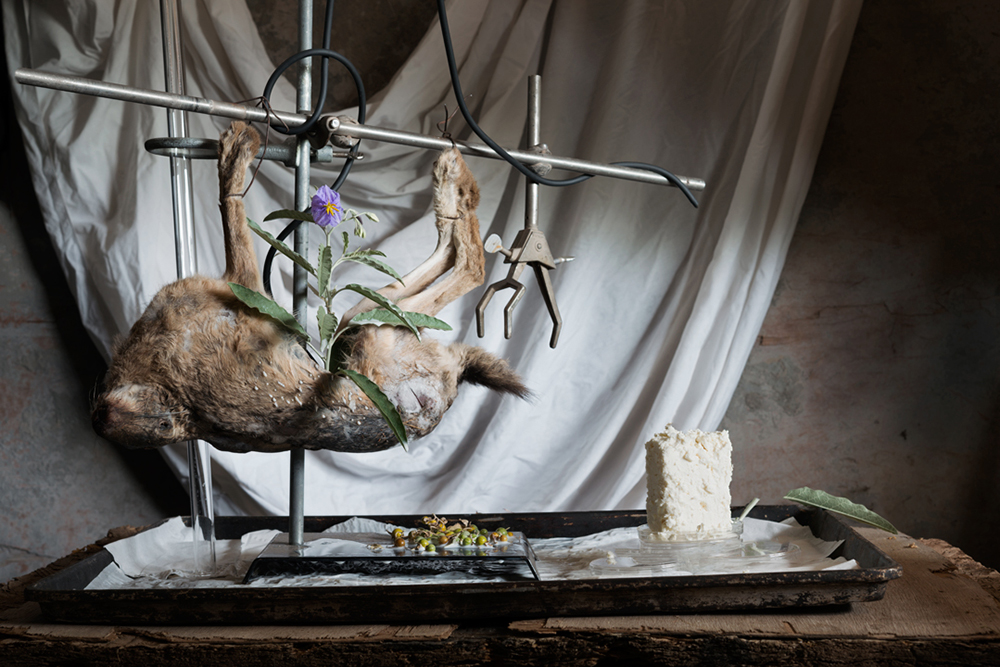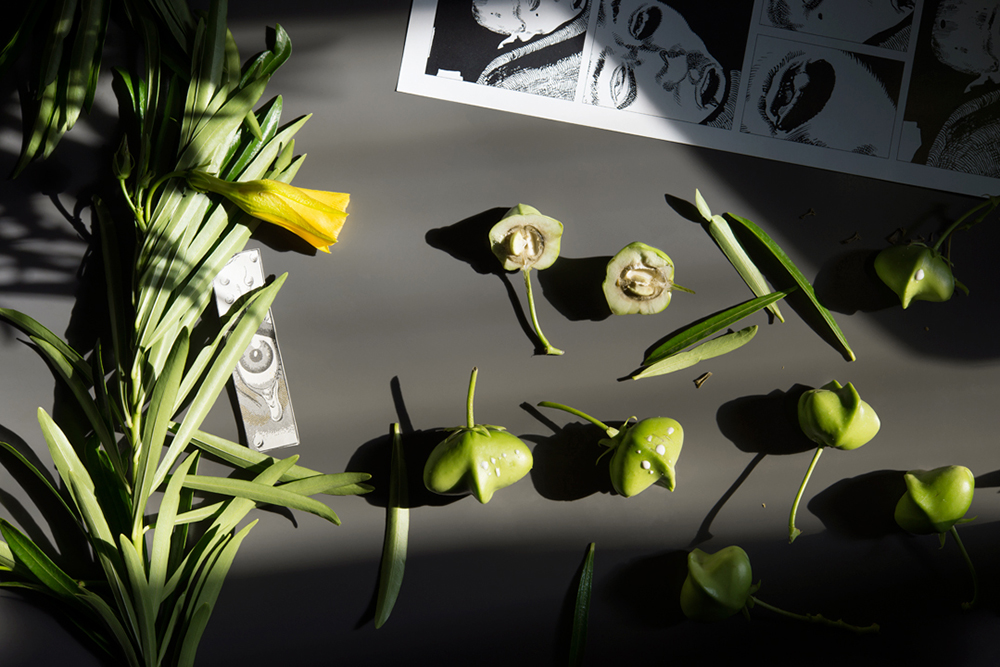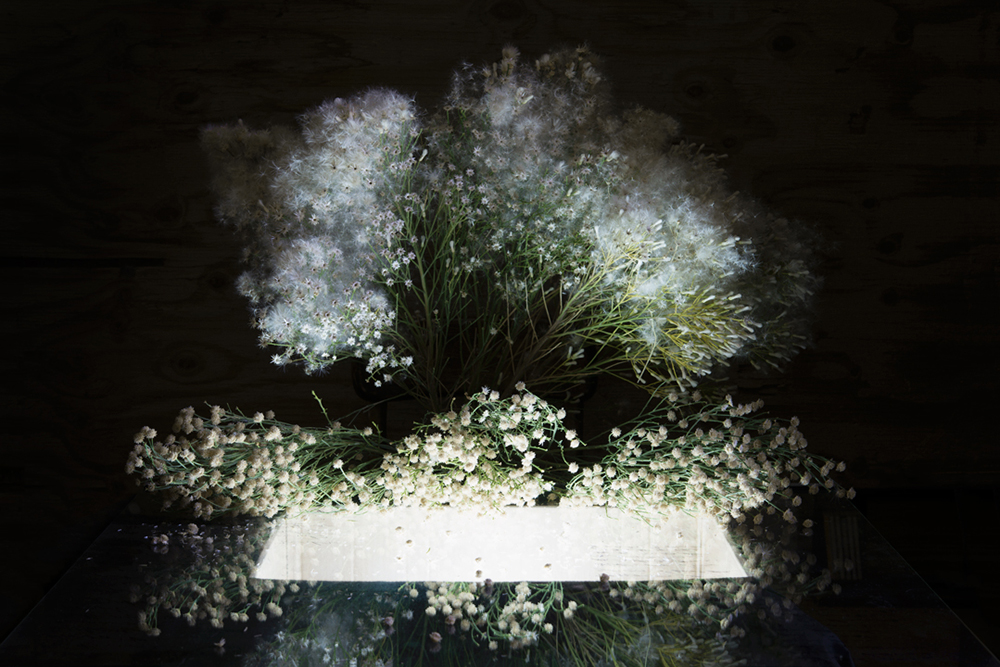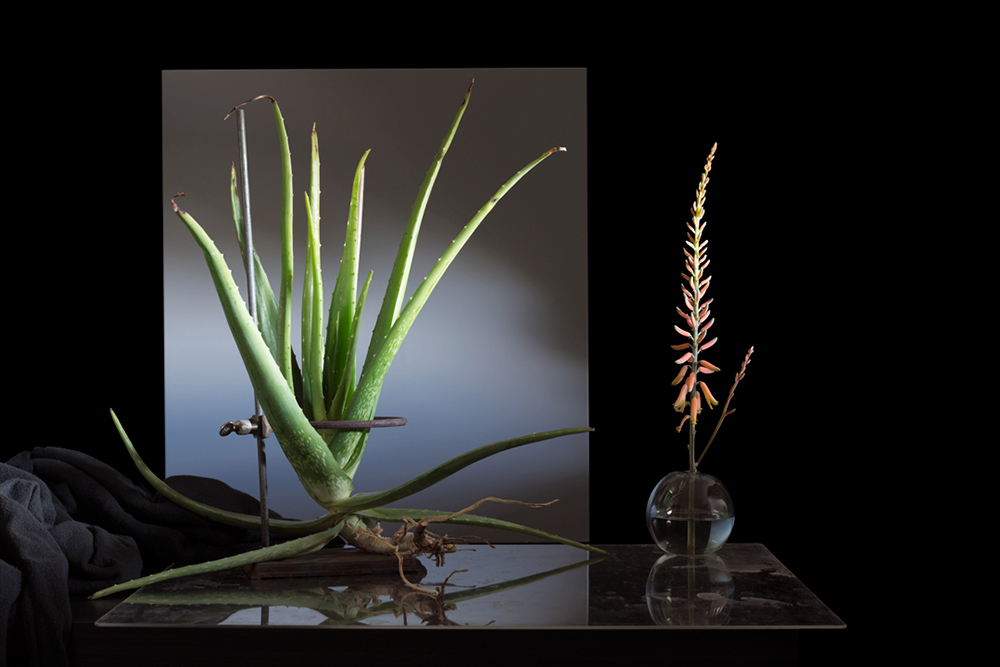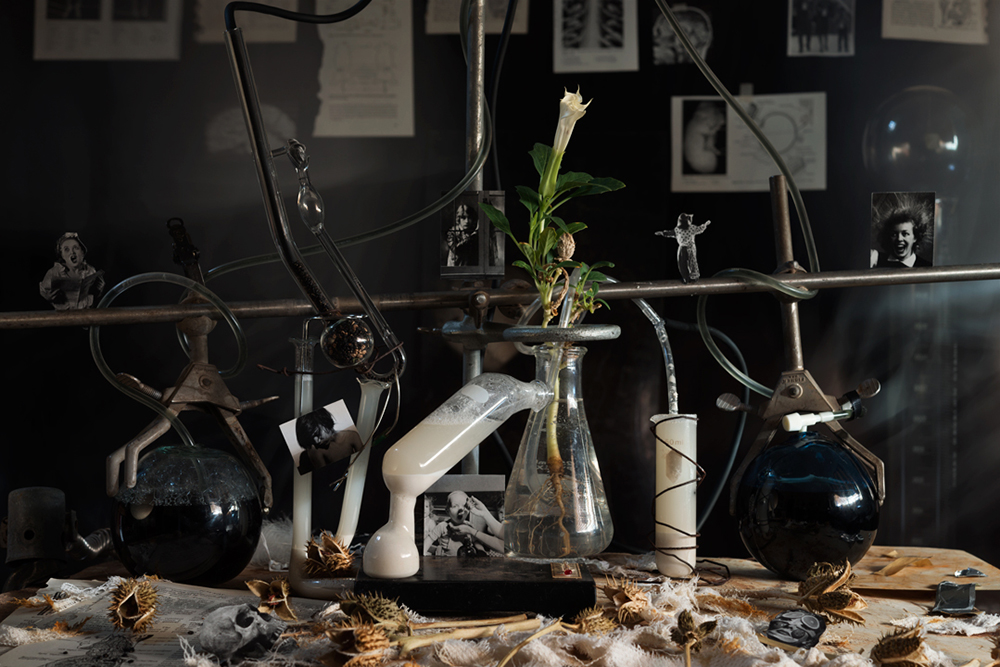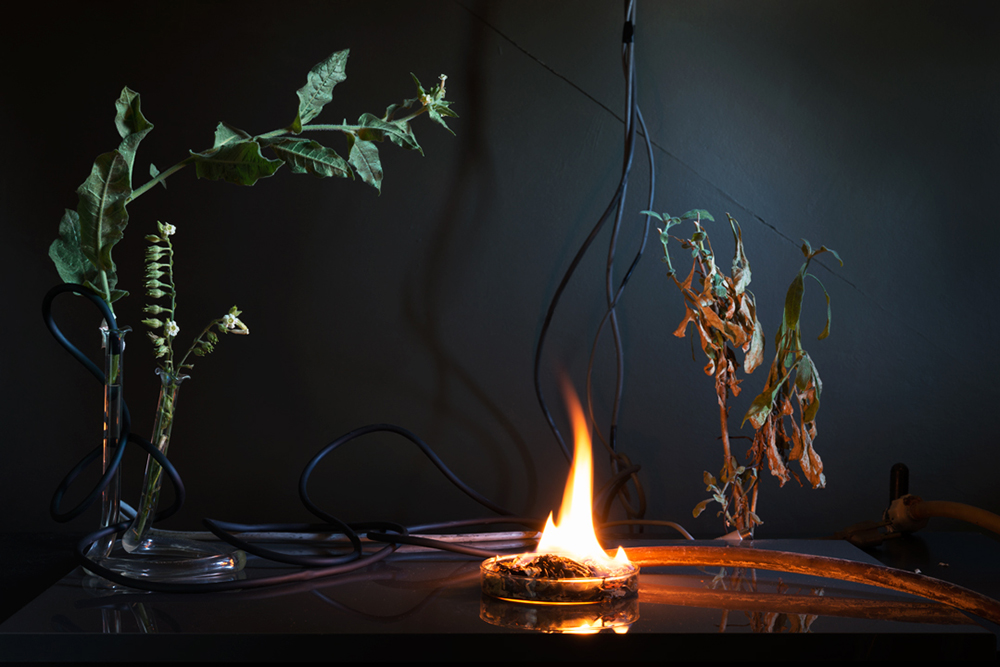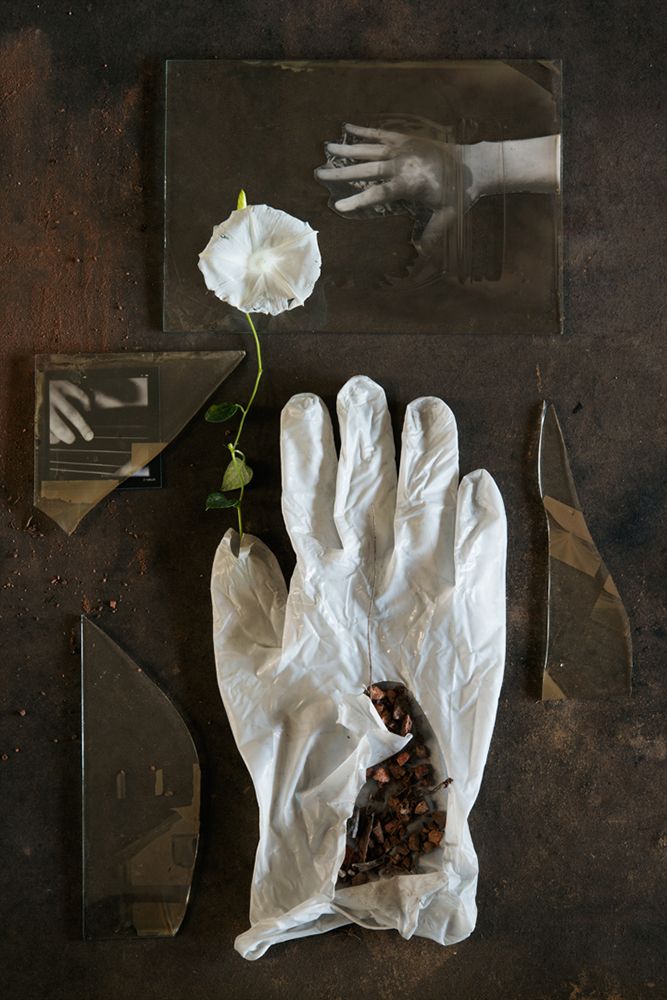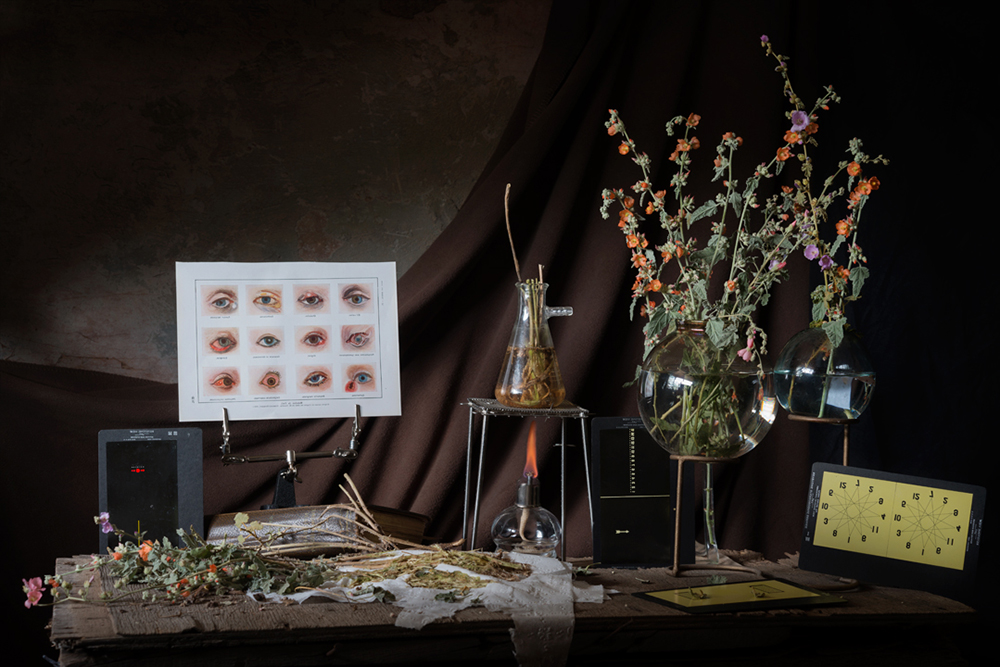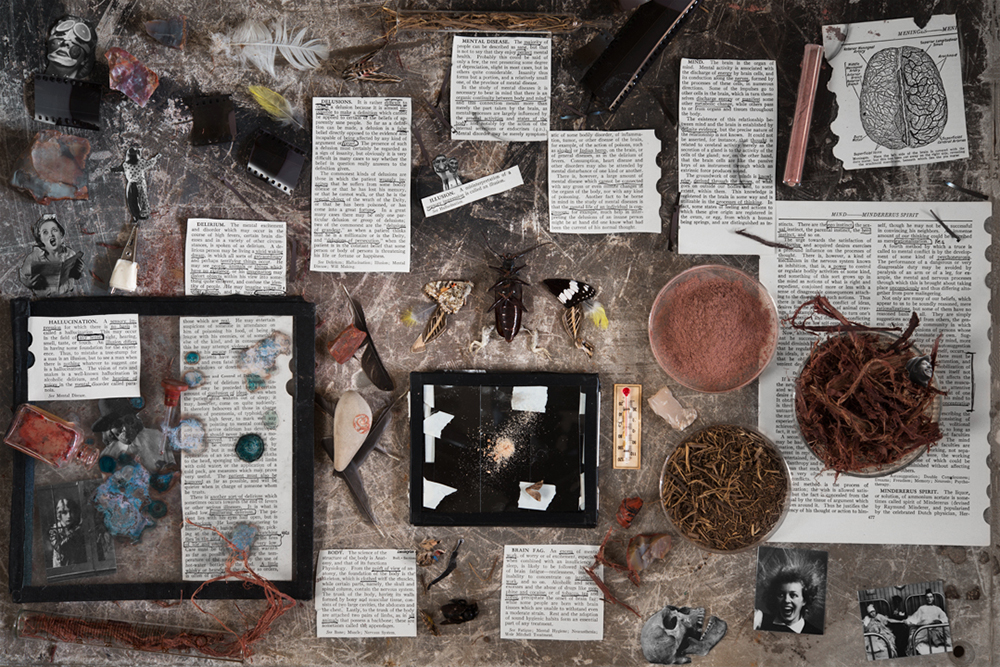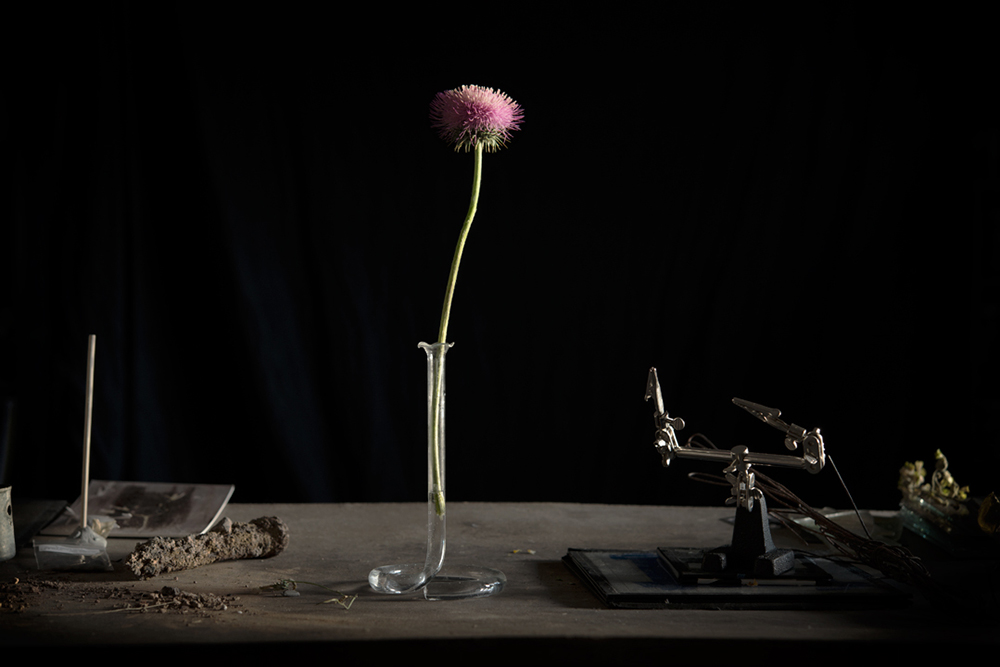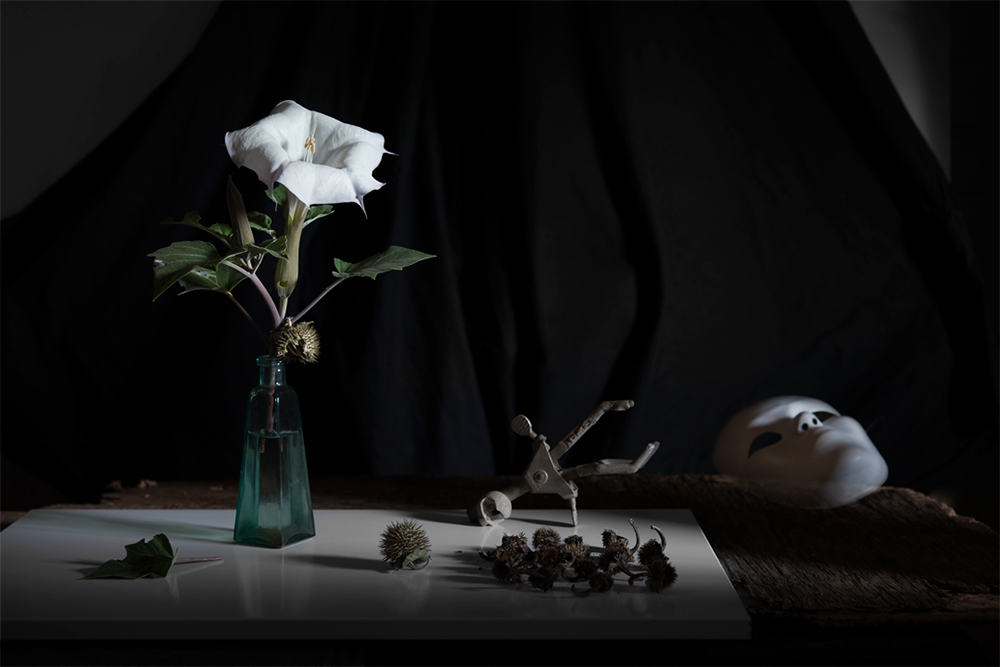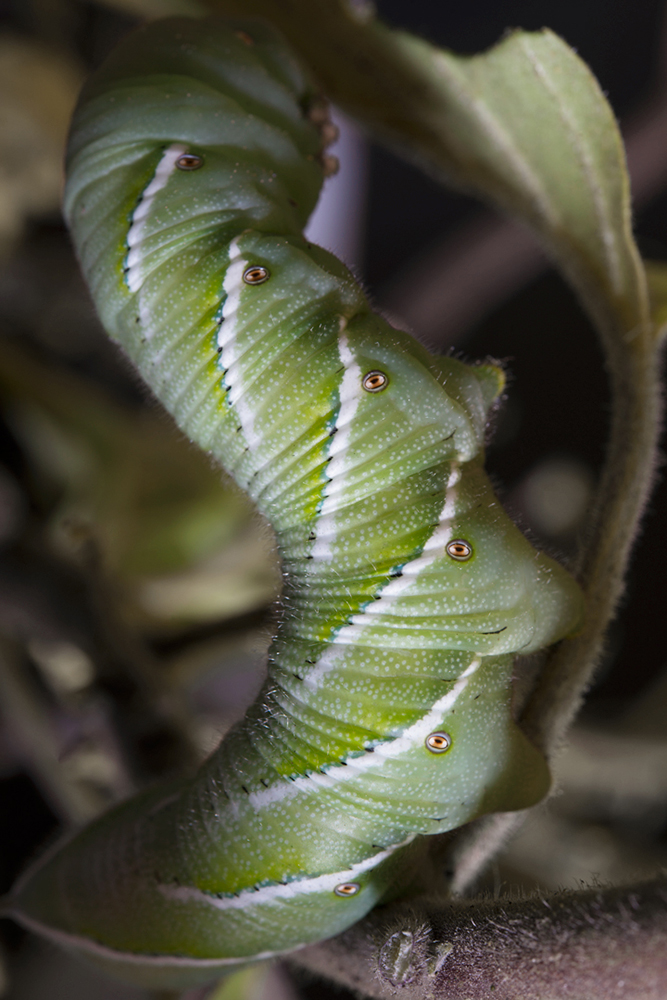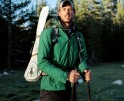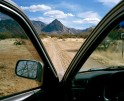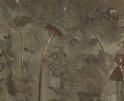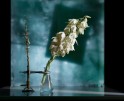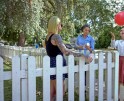Ryan Parra: The States Project: Arizona
The flora and fauna of the Sonoran desert have captivated the imagination of many artists. But I haven’t seen work exploring this topic as uniquely inspired as Ryan Parra’s newest series and MFA Thesis work, Vivarium. I first experienced his work three months ago in the Northlight Gallery and the stunning artworks have stuck with me since. Ryan creates refreshingly new and complex still-life compositions using desert plants that have edible, medicinal and psychoactive properties. In the exhibition, the artworks are coupled with meticulous research on the plants’ origin, history and uses as well as installations of curiosity cabinets. The feeling is something of an internal alchemical laboratory of Ryan’s imagination.
Ryan Parra is a photography-based artist and educator living in Tempe, Arizona. Originally from California, he holds a Bachelor of Fine Arts degree from the University of Oregon and earned an MFA degree in photography from Arizona State University in 2016. His work has been shown locally at the Tilt Gallery (Scottsdale), the Northlight Gallery (Phoenix), the phICA Container Galleries (Phoenix), and internationally at the City Cultural Center Gallery (Belgrade, Serbia). He was a recipient of the Dean’s Fellowship award, the Society for Photographic Education Travel Scholarship Award, the Nathan Cummings Travel Grant Award, and the Graduate Education Completion Fellowship, among many other honors. In 2014 he was commissioned by the ASU Health and Wellness Services permanent collection to document native medicinal plants growing in their natural Arizona environment. He currently teaches at Arizona State University and Estrella Mountain Community College.
Vivarium
Everywhere, they were surrounded by potential balms, poultices, pain relievers, euphoriants, and entheogens, using these systems as tools for the sustenance of their bodies and edification of their spirits. As pharmacology continues to advance, I believe it is important to have a sophisticated understanding of the plants from where it derived and knowledge of their traditional uses. My work is influenced by the rich history and current practices of ethno-botany (such as traditional shamanic practices), the history of still life paintings and plant illustrations, the exploration of plants as a system of knowledge, and the organization of agriculture for the purpose of sustaining the masses.
Urban areas continue to thrive and expand at a rapid rate, resulting in negative effects in biodiversity throughout the lands around them. As scientists are seeing a decline in biodiversity in wilderness areas, they are often finding the opposite trend in highly populated urban areas. This rise and fall of biodiversity is one of many reasons for my interest in still lifes of edible, medicinal, and psychoactive plants growing in the Tempe/Phoenix valley, as well as my focus on plants out in their natural environment. With this in mind, I hope to shed light on the rich variety and the importance of plants growing near and far from our homes. By incorporating styles from still life paintings throughout art history while also including descriptions of each plant’s traditional uses, I want to remind viewers of the role plants have played in the exploration of knowledge and well being for thousands of years.
The title Vivarium reflects this interest in our unique relationship with nature, and sets the theme of curiosity, containment, and control. Vivarium, meaning place of life, is an enclosed space with plants or animals for observation or research purposes. For me, this act of concealing fragments of nature expresses a sense of power one has over something, much like science with nature, while also expressing great affection and love towards that same thing. It is in this binary friction that fundamental characteristics at the root of our own nature are revealed, as are issues evident in the modern perspective of the natural world.
Posts on Lenscratch may not be reproduced without the permission of the Lenscratch staff and the photographer.
Recommended
-
Michael Matthew Woodlee: The States Project: ArizonaSeptember 11th, 2016
-
Serge J-F. Levy: The States Project: ArizonaSeptember 10th, 2016
-
James Hajicek and Carol Panaro-Smith: The States Project: ArizonaSeptember 9th, 2016
-
Ryan Parra: The States Project: ArizonaSeptember 8th, 2016
-
Emily Matyas: The States Project: ArizonaSeptember 7th, 2016

